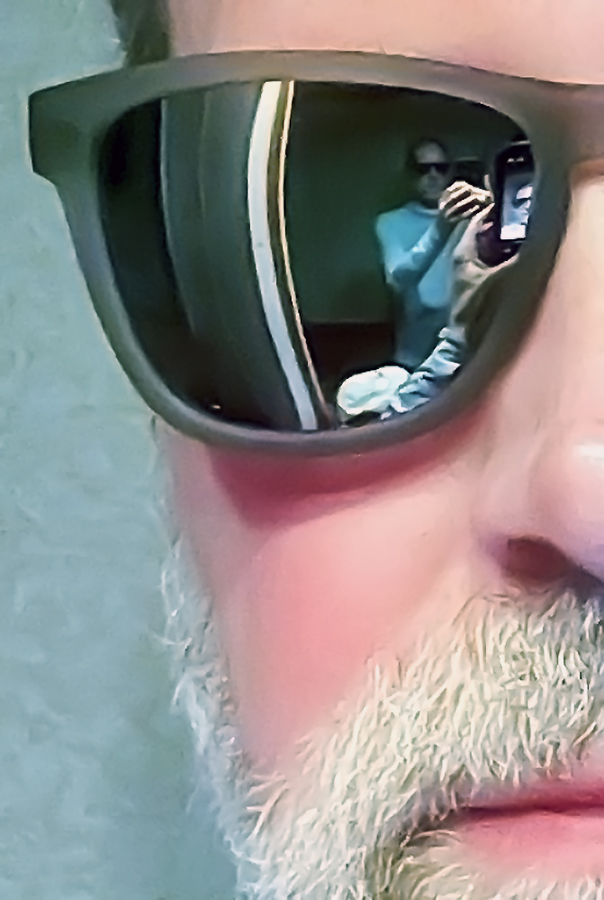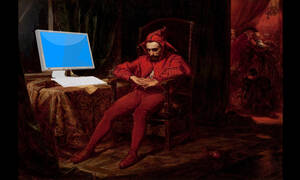C-SPAN’s Washington Journal broadcast an excellent program on the “Domestic Use of Drones” coinciding with AUVSI’s Unmanned Systems 2013, a trade show in Washington, DC, sponsored by the Association for Unmanned Vehicle Systems International. On display were the latest in unmanned aerial vehicles (UAVs) and even a $100,000, 11-foot unmanned boat. One guest pointed out that “remotely piloted,” is a better description for such systems than “drone” or “unmanned,” a distinction recognized by the International Civil Aviation Organization.
Mention the word drone and the word privacy cannot be far behind. Privacy concerns are legitimate, and the debate is important, but too often the discussion verges on paranoia. Callers to the program included a Utah woman (apparently off her meds), who claimed that police were using high frequency and low frequency sound waves and spraying poison over her home in an effort to force her to move, so a developer could acquire her property for luxury home development. Another asserted that using drones to monitor crops was a sign of the Beast of Revelation, giving him the power to control food and bring famine to those who refuse his mark.
During a segment titled “Privacy Issues and Domestic Drone Use,” Jay Stanley, senior policy analyst of the ACLU’s Speech, Privacy & Technology Project, mentioned an example of abuse that is far more in line with average people’s fears. A New York City police helicopter that was supposed to be monitoring a large bicycle protest turned its infrared camera toward a couple making love on a pitch-black rooftop. When a tape of it later leaked out, the police refused even to apologize for it, he said.
OK. I lived in New York City for five years and enjoyed a rooftop patio for part of that time. I would like to know where you find a truly “pitch-black” rooftop. There are so many exterior lights on most buildings and lights spilling out of nearby windows that “dimly lit” is about as dark as it gets.
Second, people making love outside on a rooftop in a densely built-up city cannot possibly believe they have privacy. Forget drones, what about binoculars? Outdoor sex is often described as exciting for the very reason that it involves the risk of being observed. It flouts a cultural taboo. Sounds like fun, if you have the nerve, but don’t complain if someone films it. Go inside and pull the shades.
Third, how many people, flying in a helicopter with an infrared camera, who happened upon the same scene, would avert their gaze? Certainly not the many high-rise dwellers who peer out of their windows with binoculars, telescopes, or zoom-lens cameras. Of course, average people do not have helicopters and infrared cameras. Law enforcement officials have a heightened responsibility to avoid abusing the unusual access they have to people’s private information and actions. Most of them, like the majority of doctors, lawyers, accountants and other professionals, take that responsibility seriously.
Many people flatter themselves by thinking that police (or others) have the time or inclination to peep over their fences or snoop from the air to observe backyard activities like nude sunbathing or shirtless beer drinking. They acquire this mindset from frequent sensational television shows and stories in supermarket tabloids about paparazzi stalking celebrities to capture long-distance topless photos. Attention average Joe and Jane: You are not William and Kate, Duke and Duchess of Cambridge.
Based on the large number of people I see in public who are overweight and scantily attired (nearly 40 percent of U.S. adults today are obese and look better fully clothed), much of the nattering about drones spying on residents in their backyards, strikes me as rather like amateur poets who put copyright notices on their singsong rhymes. They should be so lucky that anyone wants to read their poems, much less steal them.


